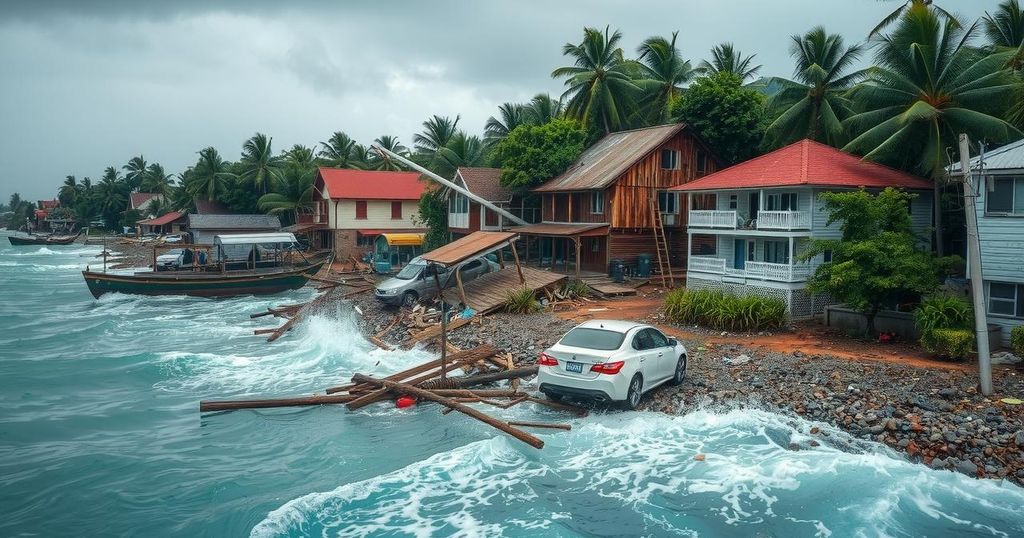Cyclone Chido Claims Lives and Causes Severe Damage in Mayotte and Mozambique

Cyclone Chido has caused extensive damage in Mayotte, resulting in at least 11 fatalities, while also leading to significant destruction in Mozambique. Aid efforts are hindered amid the devastation, with concerns of rising casualties. The cyclone’s impact reflects ongoing challenges nations face due to climate change, necessitating coordinated international responses to improve resilience and support affected communities.
Tropical Cyclone Chido has wreaked havoc in the French territory of Mayotte, resulting in the reported deaths of at least 11 individuals, as confirmed by France’s Interior Ministry on Sunday. The cyclone has now moved to landfall on the eastern coast of Africa, causing further alarm among aid agencies regarding potential loss of life and destruction, notably in northern Mozambique. Local hospitals are overwhelmed, with nine individuals listed in critical condition and over 240 others injured due to the cyclone’s severe effects.
The French Interior Ministry indicated challenges in obtaining an accurate count of casualties in Mayotte, with concerns that the toll may rise. Witnesses have described extensive damage across the island, which has suffered the most severe winds recorded in 90 years, with speeds exceeding 220 kph (136 mph). French officials highlighted the devastation of vital infrastructure, including hospitals and the main airport, substantially impacting the region’s resilience.
French Prime Minister François Bayrou expressed his concerns regarding public safety, particularly among those residing in vulnerable housing conditions. As the cyclone progresses, more than 1,600 police and gendarmerie have been deployed to assist residents and prevent looting. Moreover, aid contingents from France and Reunion Island are being sent to aid in recovery efforts and supply essential resources.
The cyclone’s southern trajectory has also triggered preparations in Mozambique, where emergency agencies estimate that 2.5 million individuals could be affected in the provinces of Cabo Delgado and Nampula. UNICEF reported significant destruction in Cabo Delgado, affecting homes, schools, and healthcare facilities. As cyclonic activity typically peaks from December through March in this region, predictions of ongoing challenges due to climate change remain concerning, necessitating increased support for affected areas.
In this context, recent cyclones exemplified the rising severity of these weather events, leading to catastrophic impacts on impoverished countries which contribute minimally to global climate change yet bear the brunt of its consequences. The consistent pattern illustrates the urgency for international cooperation in combating the repercussions of climate-induced disasters.
The devastation caused by Cyclone Chido in Mayotte highlights the persistent vulnerability of islands and coastal areas in the southeastern Indian Ocean during cyclone season, which typically runs from December to March. Cyclones have become increasingly severe due to climate change, significantly affecting regions that contribute little to the causes of such changes. As seen in past cyclones like Idai in 2019 and Freddy in 2022, these weather events often lead to substantial humanitarian crises, underscoring the need for enhanced support and infrastructure resilience in impacted areas.
The impacts of Cyclone Chido underline the urgent need for efficient disaster response and infrastructure improvement in vulnerable regions such as Mayotte and northern Mozambique. As climate change exacerbates the frequency and intensity of cyclones, there is a pressing requirement for rich nations to assist impoverished territories grappling with the fallout of such extreme weather events. Increased collaboration in humanitarian efforts is essential to alleviate disaster repercussions and support recovery efforts.
Original Source: www.seattletimes.com








